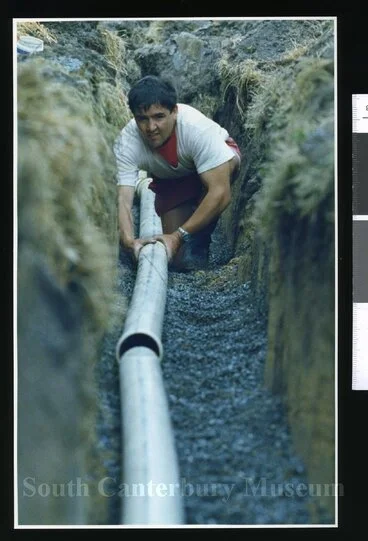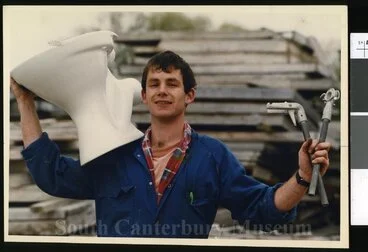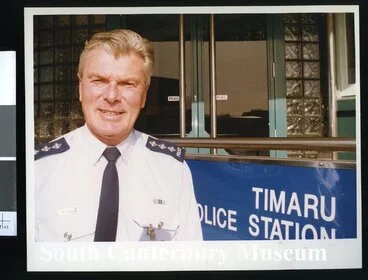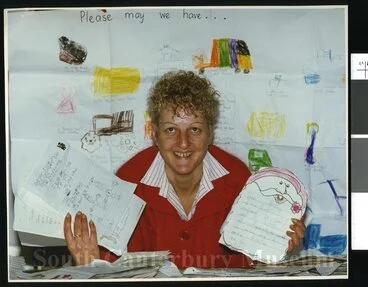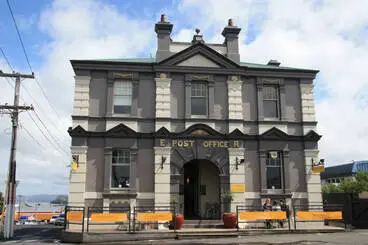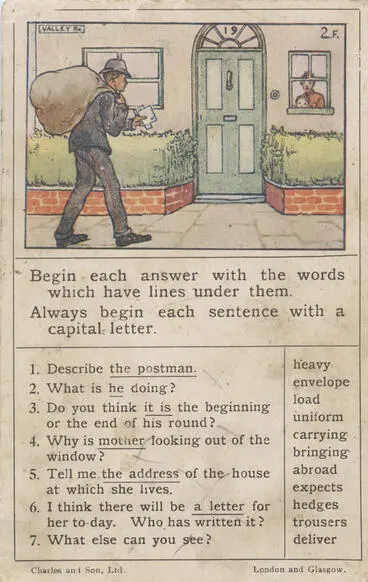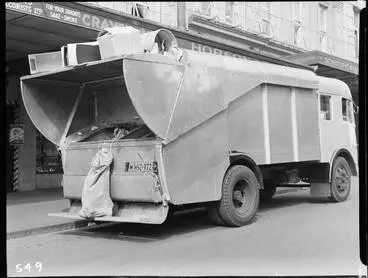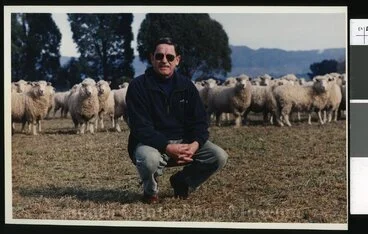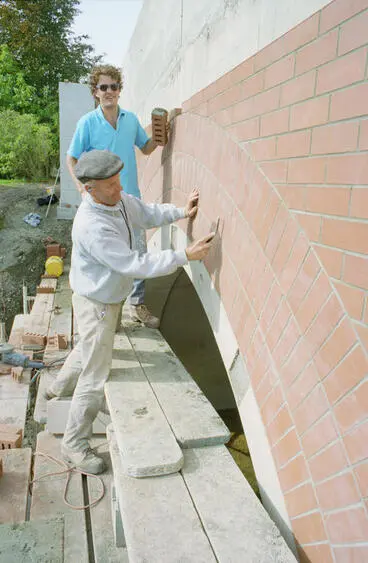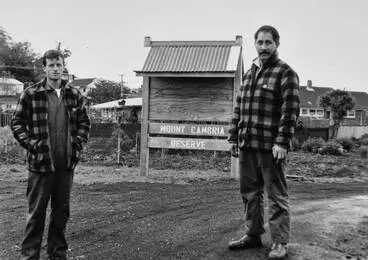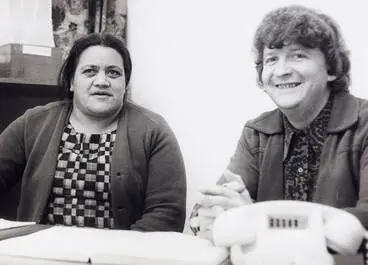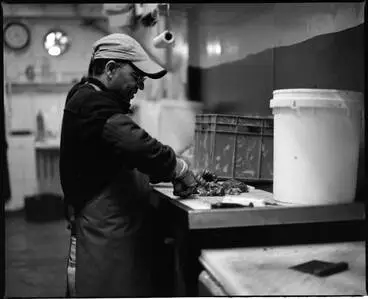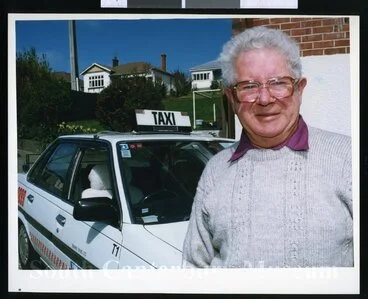Jobs in the Community (Part 2)
A DigitalNZ Story by National Library Services to Schools
Mechanics, police officers, and veterinarians play an important part in our community. This story covers essential jobs in the community and the roles they play to fulfill our needs.
COMMUNITY WORKERS WHO HELP PEOPLE
Workers at the Tasman Empire Airways Limited (TEAL) workshop at Mechanics Bay Base.
MOTAT
BACKGROUND
You will find many community workers in your neighbourhood, cities, and towns. They are people like nurses, plumbers, and teachers. This story is about some of the community workers in New Zealand and how their mahi (work) helps us every day.
This story contains information about the following occupations:
- Mechanics
- Nurses
- Plumbers
- Police Officers
- Postmen and Postwomen
- Rubbish and Recycling Collectors
- Teachers
- Veterinarians
- Glossary
MECHANICS (auto mechanics)
Auto mechanics or automotive technicians work on all types of cars, vans, and trucks. They must know how to inspect, repair, and maintain vehicles. Automobile factories, service stations, car dealers, auto repair shops, and garage are examples of the places where mechanics work.
MORE ABOUT MECHANICS
. Careers.govt.nz — has a good description of what it takes to become a mechanic and what the job involves.
QUICK FACTS
· Mechanics can often be covered in grease by the end of the day because their work involves working with greasy parts, and engines.
· Many mechanics wear overalls, face shields, gloves, and ear protection for safety reasons.
Mechanics Workshop
Antarctica New Zealand
John Barning
South Canterbury Museum
Chevrolet tow truck
Palmerston North City Library
NURSES
Nurses work in hospitals or clinics. They are trained to help people who are sick or hurt to get well again. They diagnose and treat patients, prescribe medicines, clean and dress wounds, assist in surgery and care for patients. Nurses also give advice on how to keep healthy.
MORE ABOUT NURSES
. Careers.govt.nz — covers all you need to know about nursing and training to become a nurse in New Zealand.
QUICK FACTS
· The Nurses Registration Act 1901 in New Zealand was the first of its kind in the world.
· Nursing education can be completed at polytechnics, institutes of technology and some New Zealand universities.
badge, nursing
Auckland War Memorial Museum Tāmaki Paenga Hira
[Portrait of group of nurses]
Auckland War Memorial Museum Tāmaki Paenga Hira
Sue Davidson, plumber
Manatū Taonga, the Ministry for Culture and Heritage
PLUMBERS
A plumber installs and works on pipes and systems used for drainage and sewage. They must know how to measure, cut, install or repair broken pipes.
MORE ABOUT PLUMBERS
. Britannica kids — has a good description of the work a plumber does.
QUICK FACTS
· The word plumber comes from the Latin word plumbum''which means lead. Ancient Romans used lead to make pipes to transport water.
· The Plumbers Registration Act 1912 made it compulsory for all plumbers in New Zealand to have certified licensed qualifications.
Photograph by Neil Macbeth 325
UC QuakeStudies
Plumber and drain layer Allan Derrett
South Canterbury Museum
Shawn Perry, plumber
South Canterbury Museum
Speed-measuring laser
Manatū Taonga, the Ministry for Culture and Heritage
POLICE OFFICERS
Police officers help the community by keeping people safe and maintaining law and order. They also make sure that traffic laws are followed and help the community in times of accidents and emergencies.
MORE ABOUT POLICE OFFICERS
. New Zealand Police overview — details the work, mission, and vision of the New Zealand Police.
QUICK FACTS
· The first police in New Zealand came with William Hobson when he arrived in New Zealand in 1840.
· Dogs became part of the New Zealand police force in 1956.
Police inspector Garth Hames
South Canterbury Museum
Drink driving blitz
Manatū Taonga, the Ministry for Culture and Heritage
Sorting Parcels
Palmerston North City Library
POSTMEN and POSTWOMEN
Postmen or postwomen sort and deliver mail. They also deliver parcels and letters to businesses and household letterboxes in cities, towns, and rural areas. The post office is the center of business for postal work. You can buy stamps and envelopes from a post office as well as send letters and parcels. New Zealand Post is New Zealand’s official postal service.
MORE ABOUT POSTMEN AND POSTWOMEN
. New Zealand Post — has a video that explains what’s needed to be a postman or a Delivery Agent as they are called in New Zealand.
QUICK FACTS
· The first official post office in New Zealand was in Russell in 1844.
· Internet and email mean fewer people write letters and cards these days but we still need the postal service to deliver packages.
Lynaire Newton, New Zealand Post
South Canterbury Museum
Former Onehunga Post Office, Onehunga Mall, 2009
Auckland Libraries
Teaching card, the Postman
MTG Hawke's Bay
Rubbish Removal
Palmerston North City Library
RUBBISH AND RECYCLING COLLECTORS
These important community workers drive through our neighbourhoods every week and collect garbage waste and items like bottles and cans for recycling. They begin work early in the morning and when finished the truck is then taken to a landfill or recycling center. In this way, they keep our cities and suburbs clean.
MORE ABOUT RUBBISH AND RECYCLING COLLECTORS
. Careers.govt.nz — has more information on the job of a Rubbish/Recycling Collector.
QUICK FACTS
· Rubbish and Recycle Collectors wear special clothes and safety boots to protect them while they work.
· The collectors collect separate bins for waste and recyclable materials.
Photographs relating to commerce
Alexander Turnbull Library
Rubbish truck on Customs Street West, Auckland Central
Auckland Libraries
Mahitaone kōhanga reo
Manatū Taonga, the Ministry for Culture and Heritage
TEACHERS
Teachers explain facts, so that students can understand them and learn new things. They teach reading and writing as well as subjects like science, maths and languages. They teach in schools and universities.
MORE ABOUT TEACHERS
. career.govt.nz — is a good place to look at the work that teachers do in New Zealand.
QUICK FACTS
• In the 19th century teachers in New Zealand did not have any formal training but learned on the job.
• In traditional Māori society, a tohunga (priest) carried out rituals to prepare children for their roles in the iwi.
English language teacher and students, 2011
Manatū Taonga, the Ministry for Culture and Heritage
Children working with dough
NZEI Te Riu Roa (New Zealand Educational Institute)
Vince Peterson, veterinarian
South Canterbury Museum
VETERINARIANS OR 'VETS'
Veterinarians help pets, farm animals, and wild animals stay healthy. They are specially trained to treat animals that are sick or injured. They work in clinics, veterinarian hospitals, zoos, and on farms.
MORE ABOUT VETERINARIANS
. Auckland Zoo — has a video that takes a tour of Auckland’s Zoo’s Vet Hospital.
QUICK FACTS
· In 1920, Pearl Dawson became New Zealand’s first female veterinarian. She obtained an American diploma in veterinary science by correspondence.
· At first New Zealanders had to train in Australia to become vets. then a course was set up in Massey University in Palmerston North in 1962.
SPCA vets
Manatū Taonga, the Ministry for Culture and Heritage
Vaccinating a cow
Manatū Taonga, the Ministry for Culture and Heritage
GLOSSARY
Definitions below have been taken from the Oxford Learner's Dictionary.
diploma — a course of study at a college or university.
certified — to give somebody an official document proving that they are qualified to work in a particular profession.
correspondence — the activity of writing letters.
grease — any thick oily substance, especially one that is used to make machines run smoothly.
landfill — an area of land where large amounts of waste material are buried under the earth.
traditional — being part of the beliefs, customs or way of life of a particular group of people, that have not changed for a long time.
A GALLERY OF IMAGES OF OTHER COMMUNITY WORKERS.
Dentists in training, Otago School of Dentistry, 2007
Manatū Taonga, the Ministry for Culture and Heritage
Napier bricklayers Vaughan and Mark Titter
MTG Hawke's Bay
North Shore City Council workers, Mount Cambria Reserve, Devonport.
Auckland Libraries
I bet you have to be really smart to be a pharmacist...
University of Otago
Peter Leitch, the 'Mad Butcher'
Manatū Taonga, the Ministry for Culture and Heritage
Planting pines
Manatū Taonga, the Ministry for Culture and Heritage
Junette Rielly, Māori warden
Manatū Taonga, the Ministry for Culture and Heritage
Help with the English language
Manatū Taonga, the Ministry for Culture and Heritage
CAB advisers, Ōtara, 1972
Auckland Libraries
Effects of the Canterbury earthquakes of 2010 and 2011, particularly the CBD Red Zone
Alexander Turnbull Library
Halal Butchers, Dominion Road, 2013
Auckland Libraries
Photograph number UC 11-0138-20
UC QuakeStudies
David Templeton
South Canterbury Museum
Self-employed dairy owner
Manatū Taonga, the Ministry for Culture and Heritage
Peter and Mary Chong with assistant Connie Chun, Karori, Wellington - Photograph taken by Ross Giblin
Alexander Turnbull Library
This story was curated and compiled by Te Puna Mātauranga o Aotearoa | National Library of New Zealand, Services to Schools staff, December 2020.
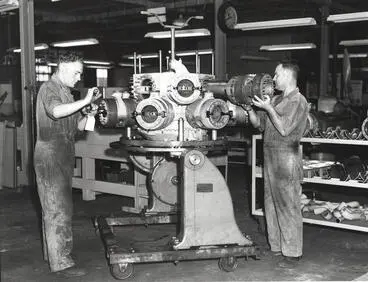
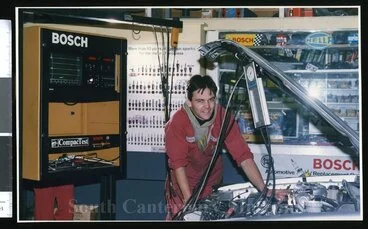

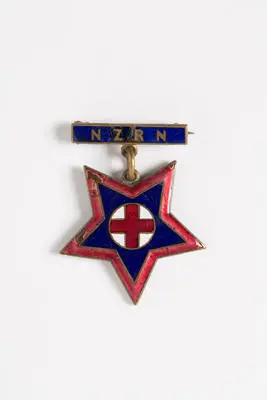
![[Portrait of group of nurses] Image: [Portrait of group of nurses]](https://thumbnailer.digitalnz.org/?resize=770x&src=https%3A%2F%2Fcollection-api.aucklandmuseum.com%2Frecords%2Fimages%2Fmedium%2F511440%2Fb43c722c9e4c1d277a71628a68c6acb75c9875c3.jpg&resize=368%253E)

